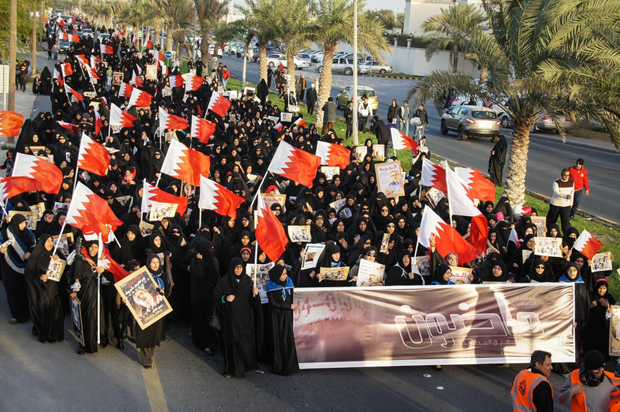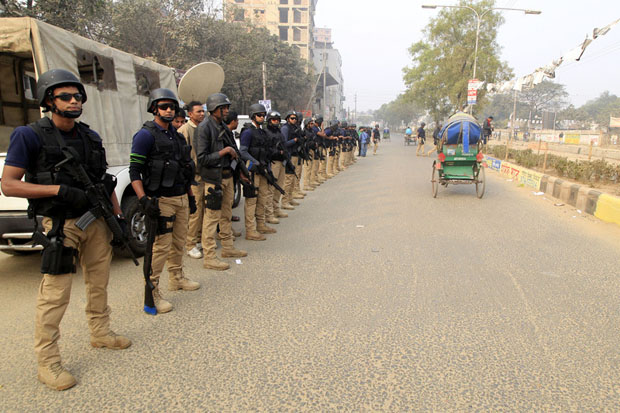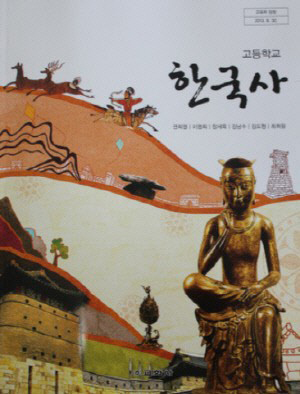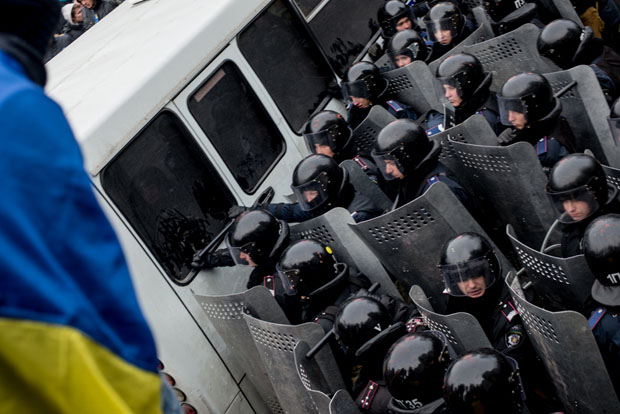21 Jan 2014 | Middle East and North Africa, News and features

A pro-democracy protest in Bahrain, where activists have been jailed for inciting protests through their online activities (Photo: Moh’d Saeed / Demotix)
One hundred and forty characters are all it takes.
Twitter users from Marrakech to Manama know—call for political reforms, joke about a sensitive topic, or expose government abuse and you could end up in jail. Following the overthrow of Muammar Qaddafi and Zine el-Abidine Ben Ali, authorities in Libya and Tunisia unblocked hundreds of websites and dismantled the state surveillance apparatus. But overall, internet freedom in the region has only declined in the three years since the Arab Spring as authoritarian leaders continue to crack down on any and all threats to their ever-tenuous legitimacy.
As the online world has become a fundamental part of Arab and Iranian societies, leaders are waking up to the “dangers” of social media and placing new restrictions on what can be read or posted online. This shift has been most marked in Bahrain, one of the most digitally-connected countries in the world. After a grassroots opposition group took to the streets to demand democratic reforms, authorities detained dozens of users for Twitter and Facebook posts deemed sympathetic to the cause. Similarly, several prominent activists were jailed on charges of inciting protests, belonging to a terrorist organization, or plotting to overthrow the government through their online activities.
Conditions in Egypt—where social media played a fundamental role in mobilising protesters and documenting police brutality—continued to decline over the past year. In only the first six months of Mohammad Morsi’s term, more citizens were prosecuted for “insulting the office of the president” than under Hosni Mubarak’s entire 30-year reign. Cases have now been brought against the same bloggers and activists that were instrumental in rallying the masses to protest against Mubarak (and later Morsi) in Tahrir Square, while countless others were tortured by Muslim Brotherhood thugs or state security forces.
Even in the moderate kingdoms of Morocco and Jordan, state officials are looking to extend their existing controls over newspapers and TV channels to the sphere of online media. Ali Anouzla, a website editor in Morocco, faces terrorism charges in the latest attempt by the state to silence him and his popular online newspaper, Lakome. Access to independent journalism is even worse in Jordan, where over 200 news sites have been blocked for failing to obtain a press license. The government instituted burdensome requirements in a bid to deter any views that counter the state-sponsored narrative.
If governments are beginning to pay attention, it is because online tools for social mobilisation and individual expression are having a profound impact. Social media accounts were set up for every candidate in Iran’s 2013 presidential elections, despite the fact that Twitter, Facebook, and YouTube are all blocked within the country. In Saudi Arabia – which now boasts the highest Twitter and YouTube usage per capita of any country in the world – social media has been used to promote campaigns for women’s right to drive, to highlight the mistreatment of migrant workers, and to debate sensitive subjects such as child molestation. Citizen journalism was vital in documenting chemical weapons use in Syria, and a new online platform alerts local residents of incoming scud missiles. Nonetheless, Iran, Saudi Arabia, and Syria rank as some of the least free countries in the world in terms of internet freedom according to Freedom House’s Freedom on the Net study.
Remarkably, the country that has made the most positive strides over the past three years, was once among the most repressive online environments in the region – Tunisia. Protest videos from the town of Sidi Bouzid led to an intense crackdown on online dissidents by the Ben Ali regime. Digital activists even enlisted the help of Anonymous, the hacktivist group, to rally international media attention, provide digital security tools, and bring down government websites. Since then, Tunisian authorities have ceased internet censorship, reformed the regulatory environment, and ceded control of the state-owned internet backbone. Tunisia is now the only country in the region to have joined intergovernmental group the Freedom Online Coalition.
So while the snowball effect of social media contributed to the overthrow of several despots, many of the region’s internet users conversely find themselves in more restrictive online environments than in January 2011. Authoritarian governments now know exactly what the face of revolution looks like and, over the past three years, have shown their commitment to counter the internet’s potential to empower citizens and mobilise opposition. Users in liberal democracies may joke about the insignificance of “liking” a post on Facebook or uploading a video to YouTube, but in a region where your social media activity can make you an enemy of the state, 140 characters can lead to serious repercussions.
This article was posted on 21 January 2014 at indexoncensorship.org
21 Jan 2014 | Asia and Pacific, Bangladesh, News and features

Election day in Bangladesh (Image: Md Manik/Demotix)
It is a story worthy of great theatre: the bitter rivalry between two women that is tearing apart a country.
Sheikh Hasina and Khaleda Zia head the two main political parties of Bangladesh, and have swapped power back and forth for the last 20 years.
The relationship between the two “battling begums” has come under international scrutiny recently, after Bangladesh suffered the most violent election in its short history. More than 100 people died during the campaign, with the country disrupted by strikes, blockades, and violent clashes between police and opposition supporters.
The controversy started well before the country went to the polls on 5 January. Since 1996, Bangladesh has held elections under a neutral caretaker government. In 2010, Hasina’s Awami League party, buoyed by a strong parliamentary majority, decided to abolish the provision. The opposition, Zia’s Bangladesh Nationalist Party (BNP) took issue with this, saying that a fair election could not be guaranteed without a neutral body overseeing it. The Awami League would not set up a caretaker government. The BNP boycotted the election.
Hasina decided to go ahead with the poll. Inevitably, her party – unopposed in 153 of the country’s 300 constituencies – won. But, equally inevitably, the validity of a contest in which there was only one real option has been questioned. The election result was also undermined by an unusually low turnout, with the government putting the figure at under 40 per cent and others reporting far less than that.
This was not just to do with voters choosing not to vote, but with a systematic campaign of intimidation and violence by supporters of the opposition BNP. Enforcing blockades, strikes, and boycotts, supporters of the BNP and their allies, the Jamaat-e-Islami, petrol bombed buses carrying workers, and set fire to shops that had opened in defiance of the strikes.
“The violence perpetrated against people who have not complied with the opposition call is a criminal act and it is the responsibility of the government to bring the attackers to justice,” says Abbas Faiz, Bangladesh researcher for Amnesty International. “But the majority of people who died during the two months of elections died from gunshot wounds. There is a strong possibility the police may have used excessive force.” Amnesty is calling for immediate investigations to identify the perpetrators of attacks, and to establish whether the force used by police was lawful. In a statement, UN Secretary General Ban Ki Moon called on “all sides to exercise restraint and ensure first and foremost a peaceful and conducive environment, where people can maintain their right to assembly and expression.”
Elections in Bangladesh tend to be big public events, with people getting up early to join famously long queues and proudly displaying their ink stained fingers. Yet people in the capital Dhaka during this year’s election described an eerie calm. Voting took place in just nine of 20 seats in the city. There were vicious attacks on the country’s Hindu minority, who make up around 10 per cent of the population and tend to support the Awami League.
The consensus seems to be that both of the main parties are equally culpable for the farce that the election has descended into. An editorial in the country’s Daily Star newspaper said that the Awami League had won “a predictable and hollow victory, which gives it neither a mandate nor an ethical standing to govern effectively”. Its verdict on Zia and her associates was no better: “Political parties have the right to boycott elections. But what is unacceptable is using violence and intimidation to thwart an election.”
The election chaos comes after a year of ugly political violence in Bangladesh: around 500 people were killed in political clashes during 2013, making it one of the most violent years since independence in 1971. This began with a mass popular movement against religious fundamentalism. Named the Shahbag movement, after the area of Dhaka where it began, the protests swiftly triggered a backlash from the religious right and their supporters. Much of this polarisation – between secularists and Islamists – had been precipitated by the government’s war crimes tribunal. Prosecuting people for crimes committed during the war of independence in 1971, the tribunal has reopened old tensions. Islamists claim it is being used to shut down the opposition, while secularists argue that the sentences (which include the death penalty) are not harsh enough.
Now, several weeks after the election, the political system remains in crisis. Zia is effectively under house arrest, while Hasina’s victory is seen across the board as empty. International and domestic observers alike say that the only way forward is for the two women to sit down together and hammer out a compromise. With early elections expected within the next 18 months, and with political uncertainty and violence continuing, this is ever more pressing.
This article was published on 21 January 2014 at indexoncensorship.org
21 Jan 2014 | Asia and Pacific, News and features, Religion and Culture, South Korea

South Korea is embroiled in a “textbook war” over what high school students learn in history class. With schools selecting their textbooks for the coming academic year, objections have been raised to one textbook that critics felt distorted the country’s history of Japanese occupation and military dictatorship. A storm of conflict has followed, raising questions over longstanding disagreements regarding how to interpret history, what young people should learn and who gets to decide on the material they study from.
The controversy started in September after the Ministry of Education gave tentative approval to a book written and published by a company called Kyohak, which is known for its right-wing leanings. After receiving tentative approval, the Kyohak book was selected for the 2014 academic year (which starts in March) by around 20 schools, a small portion of the 800 high schools nationwide.
Liberal critics argued that the textbooks misrepresented some aspects of contemporary South Korean history. In particular, they said the books painted an inaccurately rosy picture of Korea’s colonial occupation by Japan and provided an airbrushed account of the military dictatorships that held power from the 1960s through to the democratization movement of the late 1980s, when the government in Seoul softened up and agreed to elections before hosting the 1988 Summer Olympics.
The choice of the Kyohak books led to an outcry from left wing civic groups across the country, who protested at schools and government offices in an attempt to pressure the schools to cancel their selections. All but one of the 20 schools that selected the Kyohak books have since cancelled their orders for them and said they’ll use different books. The one school that hasn’t cancelled its selection is reportedly “reconsidering” its decision to use the Kyohak book in class.
But parents and activists on the other side of the political spectrum, who are more in line with the account of history presented in the Kyohak books, have argued that the liberal groups’ pressure to change the textbooks amounts to intimidation and an infringement on the schools’ rights to use the book of their choosing.
Kyohak called the campaign to keep its textbooks out of classrooms a “witch hunt” and argued that as the book had gained government approval, schools were free to select and use it if they chose.
The Ministry of Education then conducted an investigation into the schools that selected the Kyohak books and then changed their minds. It concluded that the cancellations were made due to “relentless criticism from civic groups”, as Deputy Minister of Education Na Seung-il said in a Jan. 8 press briefing.
If high school history textbooks seem like a silly thing to fight over, consider the lasting controversy over history in South Korea. The antagonism illustrated in this discussion of high school history textbooks is born of a deep, long-standing split in South Korean society: The country is still roughly divided over those who benefited from the Japanese colonial occupation (1910-1945) and those who were harmed by it. South Korean politics and media are still characterised by a left-right divide where the two sides agree on almost nothing and undermine anything associated with the other side.
In the controversy over the Kyohak books, and in discussions of South Korean history generally, the interpretation of the rule of former President Park Chung-hee (1961-1979) is a particular point of contention. After Korea became independent from Japan, Park used reparation money to establish the infrastructure and industrial base that made South Korea’s economic miracle possible. During his rule, he suspended nearly all civil liberties and ruled as a military dictator. Whether he should be remembered as a father of a successful nation or a brutal dictator who trampled on the nation’s rights is still a matter of heated debate. The Kyohak books were accused of highlighting only the benefits of his policies and ignoring the human cost.
This recent furor over Kyohak has also reignited a conversation that Park initiated when he was president. In 1974, he initiated a system whereby all schools nationwide used one official textbook, which allowed the government to control what students learned in school about their country’s history . The books told students that the coup d’etat that brought Park to power and the lack of rights enjoyed by South Korean citizens were necessary for the country’s security and advancement.
The system whereby all schools used one state-designated history textbook was ended in the mid-1990s and autonomy was granted to schools to select their own textbooks. Last week, members of the ruling Saenuri Party floated the idea of returning to the system of state-designated textbooks, ostensibly to avoid ugly episodes like the recent friction over the Kyohak books.
Current President Park Geun-hye is the daughter of Park Chung-hee. One year into her rule, many have accused her of reverting to dissent-quashing tactics that are reminiscent of her father’s time in power. The same critics who objected to the Kyohak books see the suggestion of state textbooks as opportunist move by the government, and an attempt to take control over what all young people learn.
This article was posted on 21 January 2014 at indexoncensorship.org
20 Jan 2014 | Europe and Central Asia, News and features, Ukraine

Clashes in Kiev between police and protesters on 19 January (Image: Julia Kochetova/Demotix)
At least 26 journalists were injured during the clashes between police and protesters in Kiev on 19 and 20 January.
According to the Institute for Mass Information (IMI), most of the reporters were wounded by stun grenades or rubber bullets used by the police while dispersing a rally in central Kiev, in protest at the new repressive legislation adopted in Ukraine last week.
IMI’s reports says the riot police on several occasions particularly targeted journalists, despite them having “Press” signs on their equipment and clothes. For instance, police officers shook a bus, while several journalists were filming the events from its roof, leading to several reporters falling off. The police attacked one of them, Denis Savchenko, a cameraman of 5 Channel. They tore his “press” badge of him and detained him briefly. The reporter now at home, with his leg broken.
Anatoly Lazarenko, a reporter of Spilno.tv online television, was shot in the hand while broadcasting live from the scene of the clashes. The reporter says the police aimed specifically at him to prevent him from reporting.
The legislation, adopted in Ukraine on 16 January 2014, has already been dubbed “the Dictatorship Law” by the country’s civil society. According to legal analysis done by experts of the Centre for Civil Liberties and Euromaidan SOS initiative, the law violates legislative procedures, runs counter to international treaties and domestic legislation and seriously restrict rights and freedoms of Ukrainian citizens.
The new law particularly targets free speech. It criminalises defamation, provides for liability for “distribution of extremist materials” and introduces a requirement for the registration of online media. It is now also forbidden to collect and disseminate information concerning law enforcement officers and judges.
The repressive law was officially signed by the President Yanukovich on 17 January, and has already come into force.
The full text of the independent legal analysis of the human rights related bills, adopted in Ukraine, is available here.
This article was posted on 20 January 2014 at indexoncensorship.org




